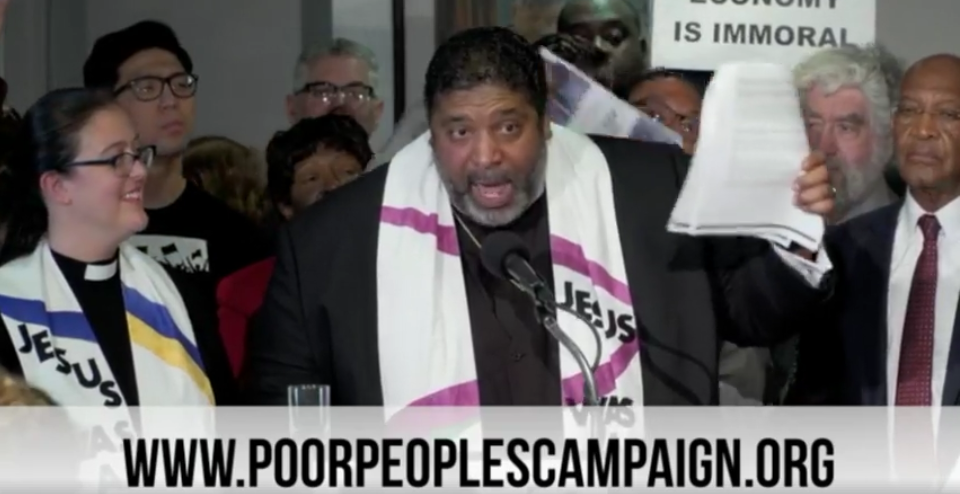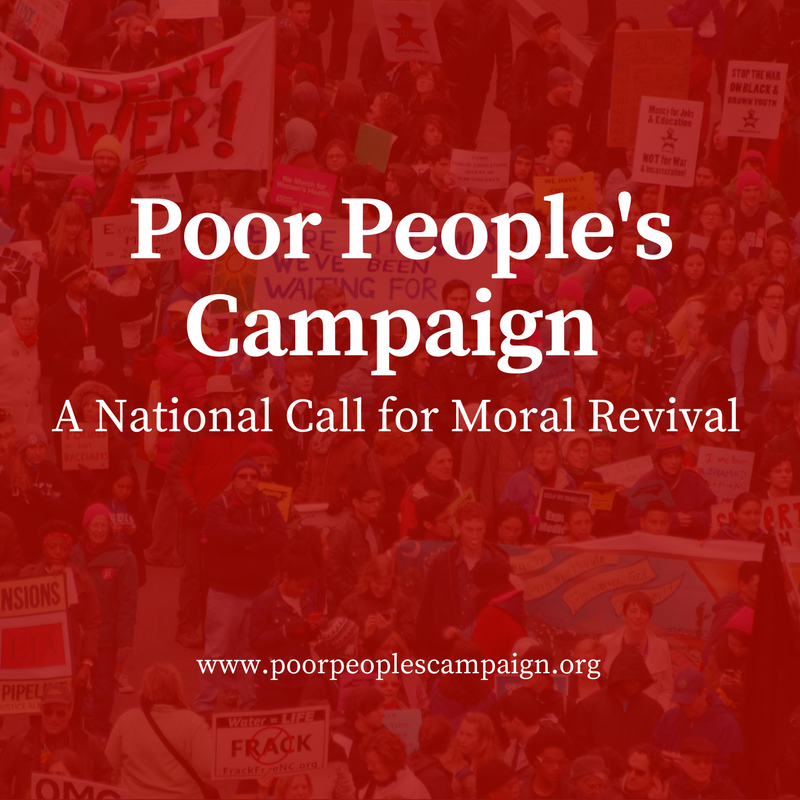 Facebook
Facebook
Leaders of the Poor People’s Campaign, Revs. William Barber and Liz Theoharis
A training session to prepare for the Poor People’s Campaign’s 40 days of nonviolent direct action will take place here Saturday, April 21st at 1 p.m.
Memphis is one of many cities across 30 states with residents planning to take part in the Poor People’s Campaign’s National Call for Moral Revival movement, which is aimed to “expose and engage in moral witness against injustice.”
Specifically, the movement is calling for the overhaul of voting rights laws, programs to help the 140 million Americans in poverty, attention to be brought to ecological devastation, and the curbing of militarism and the war economy.

Leaders of the Poor People’s Campaign, Revs. William Barber and Liz Theoharis unveiled the “moral agenda” last week during a national press conference in Washington D.C.
“Fifty years after Rev. Dr. King and the 1968 Poor People’s Campaign declared that silence was betrayal, we are coming together to break the silence and tell the truth about the interlocking evils of systemic racism, poverty, ecological devastation, the war economy and our distorted moral narrative,” the moral agenda reads. “We declare that if silence was betrayal in 1968, revival is necessary today.”
The 40 days of action will begin on May 14th and continue through June 23rd, ending with a mass mobilization in Washington D.C.
During the first of the six weeks of action, the focus will be on fighting poverty among children, women, and those with disabilities.
[pullquote-2]
Systematic racism, veterans and the war economy, ecological devastation, inequality, and the nation’s “distorted moral narrative” will respectively be the focus for the five subsequent weeks.
“With systemic racism and poverty, ecological devastation, the war economy and the often-false moral narrative of Christian nationalism wreaking havoc on our society, people of all races, colors, and creeds are joining together to engage in moral direct action, massive voter mobilization and power building from the bottom up,” Barber of the Poor People’s Campaign said. “We will no longer allow attention violence to keep the poor, people of color and other disenfranchised people down.”
The demands of the moral agenda are drawn from The Souls of Poor Folk audit that the Poor People’s Campaign, along with the Institute for Policy Studies (IPS) and the Urban Institute completed. The audit assesses the trends of poverty during the past 50 years, while addressing certain myths society holds about poverty.
[pullquote-1]
John Cavanagh, director of the IPS said the study provides the data proving that poverty is a structural and systematic problem.
“There’s an enduring narrative that if the millions of people in poverty in the U.S. just worked harder, they would be lifted up out of their condition,” Cavanagh said. “But here we’re proving—with data and analysis spanning 50 years—that the problem is both structural barriers for the poor in hiring, housing, policing, and more, as well as a system that prioritizes war and the wealthy over people and the environment they live in.
“It is unfathomable, for example, that in the wealthiest nation in the world, medical debt is the No. 1 cause of personal bankruptcy filings, and 1.5 million people don’t have access to plumbing.”
To sign up for Saturday’s training session here, visit the Action Network site.